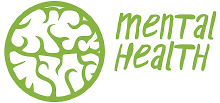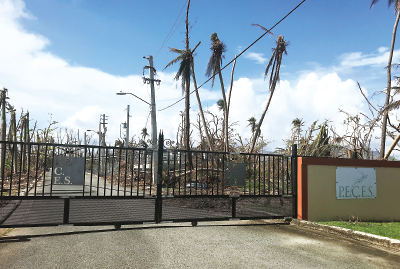Psychiatrists Collaborate With Puerto Rican Communities After Storm
Abstract
Psychiatrists and members of the public seeking to help rebuild Puerto Rico are urged to work through established organizations with roots “on the ground” in the territory.
Nearly a month and a half after Hurricane Maria roared through the Caribbean, much of the island of Puerto Rico—particularly outside the metropolitan capital of San Juan—remains without reliable power, electricity, and cell phone and Internet connectivity.

Psychiatrists in Puerto Rico and those on the U.S. mainland with loved ones on the island said that relief efforts have been hampered because communication is still touch-and-go throughout much of the territory, and transportation from San Juan to more remote spots is difficult. Also, many packages of goodwill supplies sent indiscriminately to the island have languished in ports or the Luisa MuɁoz Marin Airport in San Juan.
“We need help from people on the mainland,” said William Julio, M.D., president of the Puerto Rico Psychiatric Society. “We urge people to work through organizations that have infrastructure on the ground in Puerto Rico that can actually get aid supplies to the people who need them.”
When Julio spoke to Psychiatric News at the end of October, some areas even where he lives in cosmopolitan San Juan were still without power and electricity. “It’s been more than 40 days since the hurricane, and still 70 percent of the island is without power,” he said.
He said the office in which his psychiatric group practice is located, adjacent to a general hospital with a generator, now has power, though in the days after the hurricane there was barely anywhere on the island that was not in the dark.
“For the first couple of weeks immediately after the storm, I concentrated on getting to my office every day,” Julio said. “There was no power or air conditioning, but I kept a sign in front of my office notifying people that we were open for a couple of hours every day. My group practice uses electronic medical records so of course we were working without records.”

In Punto Santiago (above), where the community organization PECES is located, the storm surge in the wake of Hurricane Maria inundated the town. Nearly 70 percent of Puerto Rico was still without power when Psychiatric News went to press.
He has been busy refilling prescriptions when it is possible—many pharmacies in Puerto Rico were still not operating when he spoke with Psychiatric News—including prescriptions for patients of medical colleagues who were not yet able to see patients.
In a joint email to members, APA CEO and Medical Director Saul Levin, M.D., M.P.A., and APA President Anita Everett, M.D., alerted members about aid organizations to which psychiatrists in the states and members of the public could send cash donations or supplies
Importantly, a group of mainland-based psychiatrists, led by Hȳctor Colón-Rivera, M.D., and Vanessa Torres-Llenza, M.D., established CrearConSalud Inc., a nonprofit organization whose members have undertaken relief efforts in the wake of the hurricane. CrearConSalud Inc. was formed originally in 2015 with the help of APA’s Division of Diversity and Health Equity (DDHE) to foster efforts that strengthen Puerto Rico’s mental health services and workforce and to conduct nonpartisan research, educational activities, and advocacy to increase public awareness of mental illness and substance use disorders in Puerto Rico and in the Latino community in the United States. This year the organization was registered as a nonprofit in Puerto Rico.
For instance,Hȳctor Colón-Rivera said the group has visited high schools in Puerto Rico to talk to young people about mental health and careers in psychiatry.
In the weeks since Hurricane Maria, members of the group have taken turns visiting Puerto Rico. In an interview with Psychiatric News during last month’s IPS: The Mental Health Services Conference in New Orleans, Hȳctor Colón-Rivera and three other psychiatrists emphasized that the group uses a “training-the-trainers” model—they work with local leaders in towns and villages in Puerto Rico to spread the word about mental health issues, substance use, and the importance of psychiatric treatment. (The three other psychiatrists are Alan Rodriguez Penney, M.D., Carissa Caban-Aleman, M.D., and Dimas Tirado-Morales, M.D.)
That model lends itself to the kind of help Puerto Ricans need in the wake of Maria, they told Psychiatric News. They echoed Julio in emphasizing the importance of working through established organizations with local roots.
“Sustainability is vital to the efforts of CrearConSalud, and sustainable relief after the hurricane is what the island needs,” said Caban-Aleman, M.D. “We want to collaborate with local people in Puerto Rico and identify community organizations with which we can partner.”
A critical mission that CrearConSalud has undertaken is the shipment of water filters to towns in remote sections of the island. The organization has partnered with PECES, a local nonprofit whose mission (according to its Facebook page) is to “inspire and facilitate the social, educational, and economic development of the youth and residents of Punta Santiago, Humacao, and the towns of the Southeast of the Island.”
The shipment of water filters is crucial for communities like Punta Santiago, a village close to the coast that was inundated by the storm surge and has little or no access to potable water. Some 70-plus individuals in Puerto Rico have reportedly contracted leptospiroris—a bacterial disease typically contracted through contaminated water—and at least four people have died.
“The APA members of CrearConSalud Inc. have been committed to bringing an important message about mental health to communities in Puerto Rico,” said Ranna Parekh, M.D., director of APA’s DDHE. “Since Hurricane Maria, that message has become even more important, and these committed psychiatrists are working with local leaders in Puerto Rico to help the territory rebuild.”
The calamity wrought by Maria has prompted a large-scale exodus from the island, and that has included some of Puerto Rico’s already small psychiatric community. Julio and others who spoke to Psychiatric News cited a deteriorating infrastructure prior to the storm, local political and economic corruption, and what they consider a less-than-robust response to the storm from Washington, D.C.
“We have been losing physicians, not only psychiatrists, prior to the hurricane because of the fiscal crisis in Puerto Rico,” Julio said. “Six or eight years ago, there were approximately 500 psychiatrists; now there are about 300, and some of these are leaving because of the storm.”
Things are improving, although very slowly. Efforts such as those by CrearConSalud could lay the groundwork for rebuilding health and mental health services in Puerto Rico, but an enormous amount of work remains to be done.
“Sometimes a disaster like this has to occur for big changes to happen,” Julio said. ■



